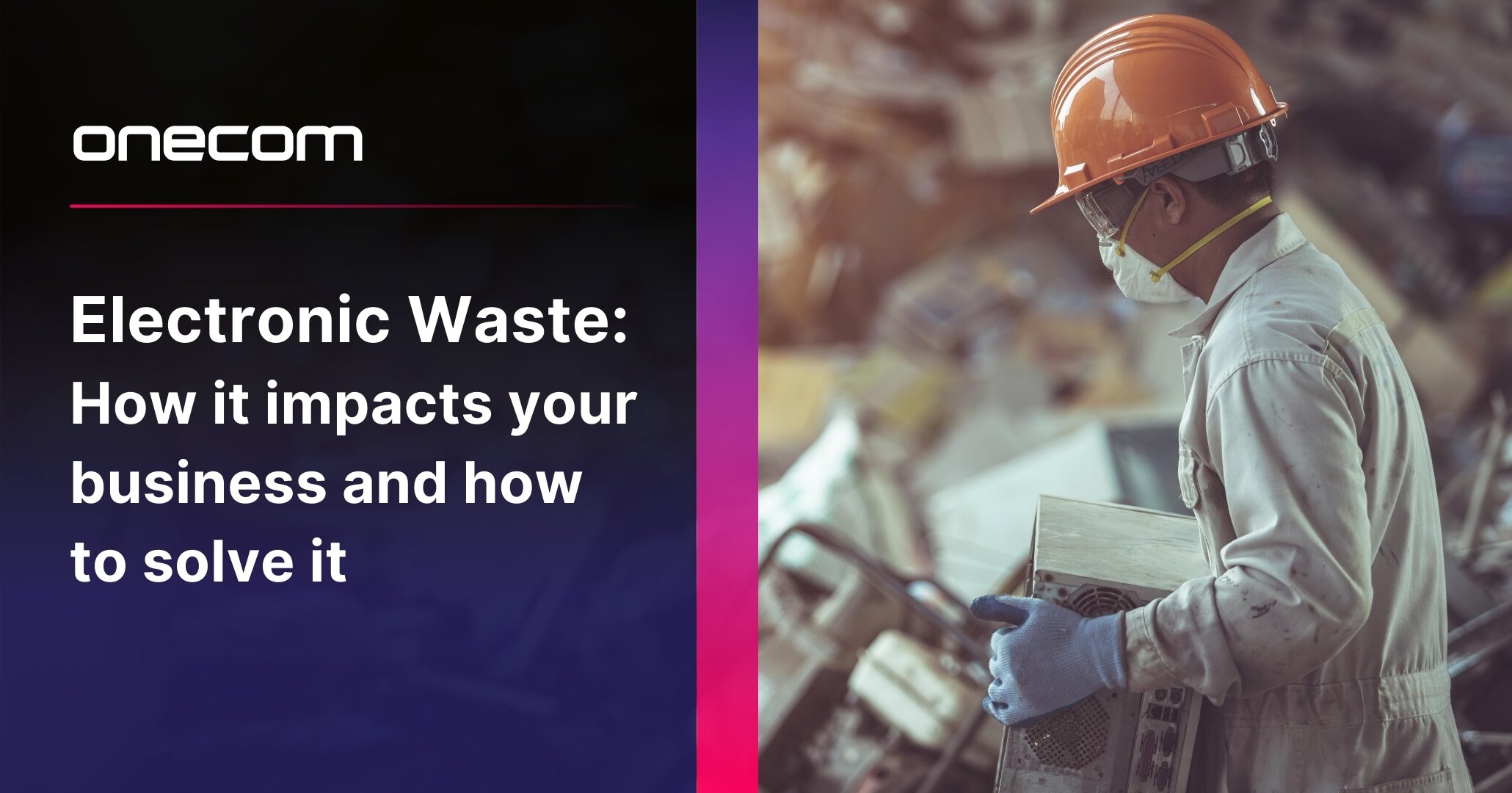What is Electronic Waste?
As our dependency on technology continues to grow, so does the amount of electronic waste (e-waste) generated every year. E-waste includes our beloved mobile phones, laptops, computers, and any piece of electronic equipment that relies on an electrical plug or battery. When technology reaches the end of its useful life and is discarded, it becomes e-waste - a growing concern that poses risks to both our environment and health.
For most businesses and consumers, the growing e-waste problem is often an ‘out of sight, out of mind’ scenario. However, as our awareness increases of the rising volume and toxicity of e-waste, shareholders and customers alike are putting greater pressure on businesses to increase their commitments to reducing their carbon footprint. Businesses are now being encouraged to adopt sustainable strategies by transitioning to a circular economy (an economy where materials are reused, recycled, remanufactured, or repurposed).
The Severity of the Problem
According to The Global E-Waste Monitor 2020, the UK has become the world's second-largest producer of e-waste per capita, with a whopping 23.9 kg per person in 2019. By the end of 2023, the world will have discarded over 61.3 million tonnes of e-waste, weighing more than the Great Wall of China. With the current disconcerting trajectory, e-waste generation figures are only expected to increase.
Why E-Waste Matters to You and Your Business
The impact of e-waste might seem like it's happening somewhere far away and doesn't affect us, but it is closer to home than we think. The constant drive for business and employee optimal performance demands the adoption of new electronic devices, essential to the modern-day work environment. Nevertheless, this necessity exacerbates the e-waste problem.
E-Waste Risks and Impacts
E-waste typically contains materials such as lead, mercury, brominated flame retardants, and other persistent organic pollutants that are harmful to the environment and human health. When decomposed, e-waste poses environmental risks, with these harmful chemicals often leaching into water supplies and damaging ecosystems.
When creating more efficient and effective e-waste disposal systems, we must also solve difficult manual deconstruction processes, that place workers at a high risk of developing respiratory issues and complications. Moreover, most e-waste ends up in developing countries, which can further exacerbate these health hazards in already struggling nations.
The Promise of Recycling
Emerging regulations, market drivers, customer expectations, as well as corporate carbon and net zero goal demands are all driving companies to consider the transition to a circular economy. More companies are investing in recovery and recycling technologies to preserve key components and raw materials from e-waste while continuing to contribute to their bottom line. By recycling old parts to create new products or retrieving raw materials from discarded products, businesses can reduce e-waste and maintain financially beneficial processes and material sources.
Onecom & Vodafone’s Solution to the E-waste Problem
As a valued partner of Vodafone, Onecom is excited to share information about Vodafone's industry-leading electronic device recycling scheme. Aligned with the UK Waste Electrical and Electronic Equipment (WEEE) Regulations, Vodafone’s initiatives allow Onecom customers to responsibly recycle their Vodafone mobile devices purchased via Onecom when they reach the end of their useful life.
More than ever, we understand the environmental concerns of our business customers. That's why Vodafone's electronic device recycling scheme is a crucial solution. By participating in this initiative, your business can continue staying ahead with the latest devices, empowering your employees to be agile and efficient, all while making a positive impact on the environment.
By participating in this scheme, we ensure compliance with environmental responsibilities while contributing to the reduction of e-waste. Together, let's make a positive impact on the environment and promote sustainable business practices.
